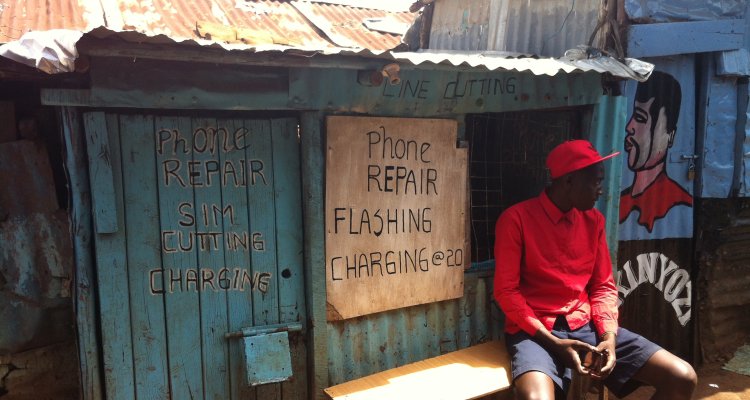
Project
Veni Project: Environmentally-related migration in the digital age
Dr. Ingrid Boas has been awarded a Veni grant – a personal grant under NWO’s innovation scheme – which will run until June 2021.
Recent Publications
- Boas, I. (2020). Social networking in a digital and mobile world: the case of environmentally-related migration in Bangladesh. Journal of Ethnic and Migration Studies,46(7), 1330-1347. https://doi.org/10.1080/1369183X.2019.1605891
- Boas, I., Farbotko, C., Adams, H., Sterly, H., Bush, S., van der Geest, K., Wiegel, H., Ashraf, H., Baldwin, A., Bettini, G.,… Zickgraf, C., Black, R., & Hulme, M. (2019). Climate Migration Myths. Nature Climate Change, 9(12): 901-903.
- Boas, I., Dahm, R., & Wrathall, D. (2020). Grounding Big Data on Climate‐Induced Human Mobility. Geographical Review, 111, 195-209. https://doi.org/10.1111/gere.12355
- Wiegel, H., Boas, I., & Warner, J. (2019). A mobilities perspective on migration in the context of environmental change. Wiley Interdisciplinary Reviews: Climate Change, 10(6), https://doi.org/10.1002/wcc.610
- Boas, I., Kloppenburg, S., van Leeuwen, J., & Lamers, M. (2018). Environmental Mobilities: An Alternative Lens to Global Environmental Governance. Global Environmental Politics, 18(4), 107-126. https://doi.org/10.1162/glep_a_00482
Boas, I. (2017): Environmental change and human mobility in the digital age, Geoforum, 85, 153-156.
Societal Impact
Project reports on the first ever hackathon for environmental migrants
- Boas, I. and F. Duynstee (2018) Hackathon for environmental migrants in Bangladesh. Available here.
- Boas, I. (2018) Environmental migration in the digital age. In: Digital Platforms for Sustainability Governance, M. Lamers et al. (eds.) Available here
- Boas, I. and F.Duynstee (2020). The Kenya Hackathon for Environmental Migrants. Available here.
Interviews on environmental migration in the digital age
Interview in NRC newspaper (2018). Available here.
Wageningen World, A better life for refugees (2018). Available here.
Scientias.nl, in Dutch: Op de vlucht voor het kilmaat (2017). Available here.
Summary of the project
Environmental impacts are a growing factor in human migration. Between 2008 and 2014, more than 25 million people per year were uprooted because of rapid-onset disasters such as floods and storms (IDMC 2015). Climate change is expected to make this worse. Whilst much scholarly research has been done on environmentally-related migration, a blind spot remains when information and communication technologies (ICTs) come into the equation. This whilst ICTs – such as mobile phones and smart phones – and related information exchange are playing a crucial role in decisions and practices of migrants.
The central aim of this research is to provide a fundamental understanding of the ways in which ICT-enabled information exchange shapes practices and flows of environmentally-related migration. The research is conducted via two case-studies: Bangladesh and Kenya. In Bangladesh it is analyzed how ICT-enabled information exchange shapes migration in the context of floods, storms and erosion. In Kenya this is analyzed in the context of drought and uncertain rain patterns. A key method is tracing the information exchange and social networks between migrants and affected communities to study the role of ICT-enabled information exchange in their migration practices.
See also NWO: https://www.nwo.nl/onderzoek-en-resultaten/onderzoeksprojecten/i/25/27325.html.